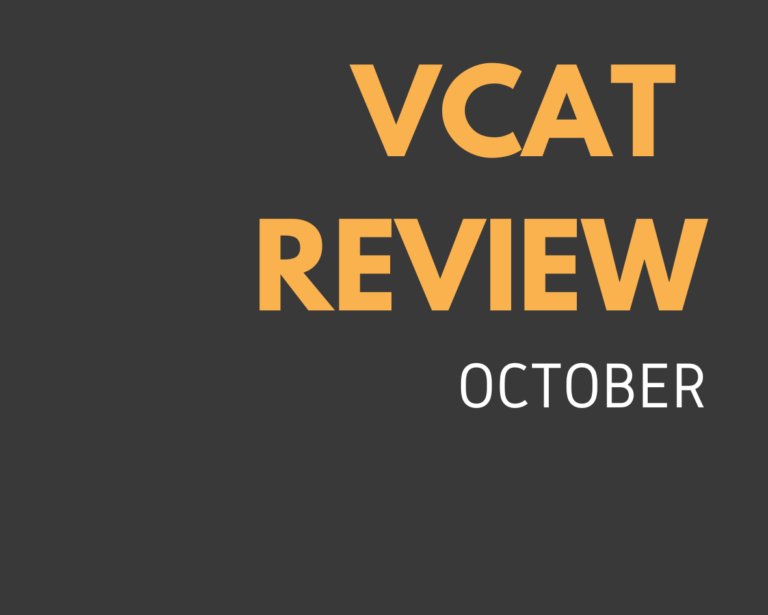Several touched upon the implications of Amendment VC243, with D’Andrea v Boroondara CC [2023] VCAT 1148 being the most notable and which addressed Standard B17. Boxtel v Bayside CC [2023] VCAT 1175 also raised the question of amendments to permits in the context where a permit was no longer required. This matter concerned amendments to a 2009 permit allowing alterations and additions to a lot less than 500sqm (but greater than 300sqm) and an appeal by an objector.
25. In its written response to the administrative mention dated 10 October 2023, the Council explained its uncertainty about the implications of Amendment VC243 for legacy permits where an amendment to an existing permit would otherwise be exempt from requiring a planning permit. It advised that it was seeking legal advice. It foreshadowed an update at the practice day hearing as a consequence of the legal advice.
30. On 18 October 2023, the Council provided a further written submission, based on the legal advice it obtained. The Council’s position was that the amendment sought by the permit applicant is not able to be granted and that the Tribunal does not have jurisdiction to consider the matter. The submission explains this position. The Council also requested written reasons assist its consideration and assessment of legacy permits.
Unfortunately for readers, the permit applicant did not attend the subsequent Practice Day Hearing and the proceeding was struck out for want of prosecution as opposed to for want of jurisdiction or any other reason. It is nevertheless another implication of VC243 that permit applicants and responsible authorities will need to be aware of.
The Terminus Hotel (FHG) Pty Ltd v Yarra City Council [2023] VCAT 1068 received some media attention regarding the construction of a beer garden. The hearing concluded on 17 July with all parties agreeing that the exemptions within Clause 52.18 (which the current beer garden relied upon) expired on 12 October 2023. However, on 6 October VC247 extended Clause 52.18 by a further 12 months to 12 October 2024. Given the Tribunal effectively found that there were likely existing noise issues, but the proposed beer garden would be acceptable (and an improvement on the existing situation), it will be interesting to see how quickly the permit applicant looks to act on their permit given VC247 effectively allows the status quo to continue for a further 12 months.
Mahmood v Merri-bek CC [2023] VCAT 1183 involved an appeal against Council’s decision to extend a permit by one year as opposed to the two years sought. Both parties and the Tribunal referenced the decision of Victton Pty Ltd v Melbourne CC [2020] VCAT 1233. Of interest were the comments:
17. The applicant submits that Victton stands for the proposition that the Tribunal is deprived of jurisdiction even if council decides to extend the commencement and completion of development by one day. I consider the applicant is saying that such a decision would be tantamount to a refusal of the request for an extension of time. This proposition was also dealt with in Victton, and I agree with the reasoning of the Tribunal that the PE Act provides a methodical way for decisions that can be made and those that can be the subject of an application for review. In relation to s 81(1)(a) and (b) of the PE Act the decision to refuse or the failure to decide within time relates to the extension of time, it does not relate to the period of time sought in the request for an extension of time.
18. To the extent the situation described by the applicant in this proceeding arises in the future, that is, a council decides to extend time for commencement and completion for one day, there are alternate remedies available for such a decision. However, to be clear, in the circumstances before me in this proceeding, there is no refusal or constructive refusal to extend time to commence and complete development under the permit.
Clifton Springs (Holdings) Pty Ltd v Greater Geelong CC [2023] VCAT 1200 concerned an application under the Fast Track List relating to a refusal to endorse plans under a condition of the permit. The permit applicant sought leave to substitute plans at the commencement of the Hearing arguing that they were in response to further understanding the Council’s position.
12. The applicant submitted with reference to ID-FLK Gisborne Pty Ltd v Macedon Ranges SC (Red Dot) [2019] VCAT 1336 that I have the power to amend the plans as they are clearly ‘a document within the proceeding’ as construed within section 127. Council did not object on this point and as the plans are the documents in dispute, they are clearly ‘documents within the proceeding’ and I accept I have the power to make the amendment, subject to any concerns around procedural fairness.
13. Because of the nature of the application, it was included in the FTL by default. The FTL is an initiative of the Tribunal to improve the timeliness of decisions in matters where there are limited parties and with other characteristics. The FTL includes the following guidance:
There will be no opportunity to amend the plans associated with the review as the nature of the proceeding renders this process irrelevant. (Practice Note PNPE9 does not apply to any of the types of applications proposed for the FTL.)
14. The applicant argued, and I accept, that this does not impose a statutory constraint on my exercise of discretion under section 127. It further submitted that to adjourn the case and relist it as a standard case at some point in the future would be unfair given the nearly 12 months to get to this point, and the delays to development that are occurring.
15. I am conscious that council initially indicated they had not had adequate time to properly review the revised plans. At the hearing however, council were well prepared and engaged in significant detail with the amended plans through submissions and cross examination of Mr Prossor.
16. Overall, I am not concerned that council has suffered procedural unfairness or material detriment because:
– The changes to the plans are relatively minor in scope and largely go to clarification and additional notations rather than substantive changes to the Central Road design.
– The changes are explicitly identified as responding to council’s comments register and the evidence of Mr Prossor.
– The degree to which council was able to engage with the material in the Hearing.
17. In the context of the facts of this case I consider the substitution of the plans is the most efficient and just way forward.
Unique Food Trucks Pty Ltd v Wyndham CC [2023] VCAT 1205 involved a proposal for 12 food trucks and an ice cream shop inside an existing building. The land was zoned Industrial 3 and the permit applicant applied for ‘food and drink premises’ before amending their application to ‘take away food premises’ and submitting that a ‘use’ permit was not required. A maximum patronage of 70 persons was intended. The Tribunal agreed with the permit applicant that the proposal constituted a take away food premises and did not require a permit. The Tribunal stated:
37. Council submitted the proposal for 12 separate food trucks and an ice cream shop was equivalent to 13 separate uses occurring on the site with an intensity of use not envisaged under the planning scheme.
38. Irrespective of the number of take away food options, the definition for take away food premises does not include any reference or inference to the number of separate of businesses or take away food offerings on a site. It refers to land used to prepare and sell food and drink. I do not consider the definition places limits on the intensity or scale of how land may be used for providing for take away food.
39. Council submitted the proposal for multiple food trucks on the one site was not a type of take away food operation envisaged under the planning scheme and that the proposal should be considered as an innominate use.
40. I do not accept this argument. Take away food premises is listed as not requiring a permit for use under the IN3Z. There are no conditions limiting its activity or location and the definition places no limits on the scale, intensity or on the number of take away food options that may be available on the land.
41. The proposal, as amended, now does not intend to provide for on-site dining or for on-site consumption of food and drink. Up to 10 seats may be made available for consumption on-site. This is provided for under the definition for a use that does not require a permit.
42. I find the proposal, as amended and described by the applicant, is for take away food premises and that a permit for use is not required.
Glossop Town Planning enjoyed another busy month appearing before the Tribunal either as an advocate (Hew Gerrard) or expert planning witness (John Glossop). If Glossop Town Planning could potentially be of assistance with any VCAT related matters, please contact our office on 9329 2288 or via email at mail@glossopco.com.au.


